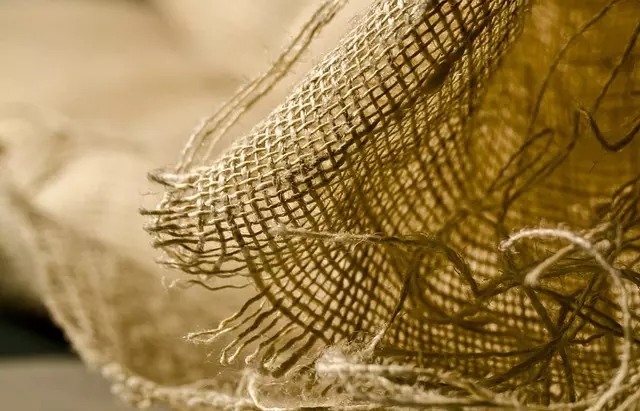Muscle soreness, commonly known as delayed-onset muscle soreness (DOMS), is typically experienced after new or intense physical activities due to microscopic tears in muscle fibers and an inflammatory response aimed at repair. To manage this, a combination of strategies that include gentle stretching, low-impact exercises like swimming or cycling, and complementary practices such as yoga or Pilates is recommended to ensure recovery while maintaining an active lifestyle. Red Vein Thai Kratom, with its pain-relieving and anti-inflammatory properties from compounds like 7-hydroxymitragynine and mitragynine, can potentially help alleviate muscle soreness by interacting with the endocannabinoid system. It's important to approach this natural supplement with caution, considering individual sensitivity levels, and to consult healthcare professionals before use. A holistic recovery plan that includes proper hydration, rest, nutrition, and a tailored exercise routine can maximize the potential benefits of Red Vein Thai Kratom for effective muscle recovery and pain management. This approach helps maintain workout effectiveness and overall muscular health without overburdening the body with soreness.
Muscle soreness can be an inevitable consequence of engaging in physical activity, often perceived as a barrier rather than a byproduct of fitness progress. Understanding the origins and mechanisms behind this discomfort is key to effectively managing it. This article delves into the relationship between exercise and muscle soreness, with a particular focus on the therapeutic potential of Red Vein Thai Kratom in mitigating pain and facilitating recovery. We will guide you through crafting a personalized workout regimen that integrates this natural compound to alleviate your muscle soreness, ensuring you can continue to pursue your fitness goals with minimal discomfort. Join us as we explore the intersection of exercise science and holistic well-being to enhance your athletic performance and overall health.
- Understanding Muscle Soreness and Its Relationship with Physical Activity
- The Role of Red Vein Thai Kratom in Muscle Recovery and Pain Management
- Crafting a Customized Workout Plan to Alleviate Muscle Soreness Using Red Vein Thai Kratom
Understanding Muscle Soreness and Its Relationship with Physical Activity

Muscle soreness, often referred to as delayed-onset muscle soreness (DOMS), is a common experience among individuals engaging in physical activity, particularly after unaccustomed exercise. This phenomenon occurs when muscles are subjected to intense or unfamiliar stress, leading to microscopic tears within the muscle fibers. The body’s natural response to this trauma is an inflammatory process aimed at repair and regeneration, which can result in the telltale signs of soreness and tenderness. Understanding the mechanisms behind muscle soreness is crucial for tailoring workout plans that balance intensity with recovery, ensuring safety and efficacy in fitness routines.
Incorporating exercises like those found in Red Vein Thai, a strain known for its calming and pain-relieving properties, can be beneficial for individuals experiencing muscle soreness. This strain may help alleviate discomfort associated with physical exertion by interacting with the body’s endocannabinoid system, potentially reducing inflammation and facilitating faster recovery. When designing a workout plan to manage muscle soreness, it’s important to include activities that gently stretch and mobilize affected muscles while avoiding overexertion, which could exacerbate the condition. Engaging in low-impact exercises such as swimming or cycling, alongside yoga or Pilates, can provide a comprehensive approach to muscle care, allowing for continued physical activity without compromising health and well-being.
The Role of Red Vein Thai Kratom in Muscle Recovery and Pain Management

When addressing muscle soreness, individuals often seek natural solutions alongside conventional recovery methods. In this context, Red Vein Thai Kratom has gained attention for its potential role in muscle recovery and pain management. This particular strain of Kratom is known for its unique alkaloid profile, which includes the primary active compounds 7-hydroxymitragynine and mitragynine. These alkaloids are believed to interact with the body’s opioid receptors, providing pain relief and promoting a sense of well-being that can be conducive to muscle relaxation. Users reportedly experience reduced muscle tightness and discomfort after incorporating Red Vein Thai Kratom into their regimen, which may enhance their ability to engage in subsequent workouts without the hindrance of lingering soreness.
Furthermore, Red Vein Thai Kratom is recognized for its anti-inflammatory properties, which are crucial in the context of muscle recovery. Its efficacy in managing pain associated with muscle strains and overuse injuries can be particularly beneficial for athletes and those with active lifestyles. However, it’s imperative to approach its use with caution, as dosage and individual sensitivity can vary greatly. It’s also recommended to consult healthcare professionals before integrating Red Vein Thai Kratom into any wellness routine, especially when combined with a customized workout plan aimed at alleviating muscle soreness. Users should prioritize a holistic approach that includes proper hydration, adequate rest, and balanced nutrition to complement the potential benefits of Red Vein Thai Kratom for optimal muscle recovery and pain management.
Crafting a Customized Workout Plan to Alleviate Muscle Soreness Using Red Vein Thai Kratom

When muscle soreness impedes your fitness journey, a tailored workout regimen combined with the analgesic properties of Red Vein Thai Kratom can be a powerful duo for relief and continued progress. Crafting a customized workout plan that incorporates exercises which target different muscle groups can help distribute the strain across various areas, reducing the intensity of soreness and promoting overall muscular health. For instance, integrating low-impact activities like swimming or cycling can maintain cardiovascular health without aggravating sore muscles. Similarly, stretching routines and resistance training with lighter weights can aid in muscle recovery while still challenging the body.
Red Vein Thai Kratom, a naturally occurring plant alkaloid, has been traditionally used for its potential pain-relieving and mood-enhancing effects. When included as part of your post-workout routine, it may help alleviate muscle soreness by interacting with the body’s opioid receptors, providing a soothing effect that complements physical activity. It’s important to note the appropriate dosage and consult with a healthcare provider before incorporating Red Vein Thai Kratom into your wellness regimen. When used responsibly and as part of a holistic approach to fitness and health, it can be a valuable addition to an individual’s strategy for managing muscle soreness and enhancing the effectiveness of their workout plan.
muscle soreness, Red Vein Thai Kratom, customized workout plans, muscle recovery, physical activity, pain management
In conclusion, muscle soreness is a common occurrence for individuals engaged in regular physical activity. Understanding its origins and impact is the first step toward effective relief. Red Vein Thai Kratom has emerged as a potential aid in managing muscle soreness and pain, alongside a tailored workout regimen. A customized workout plan that incorporates Red Vein Thai Kratom can be a powerful tool for athletes and fitness enthusiasts alike, helping to mitigate discomfort while promoting overall muscle recovery. By considering individual needs and the specific effects of Red Vein Thai Kratom, one can design an exercise routine that not only supports recovery but also enhances performance and well-being.






